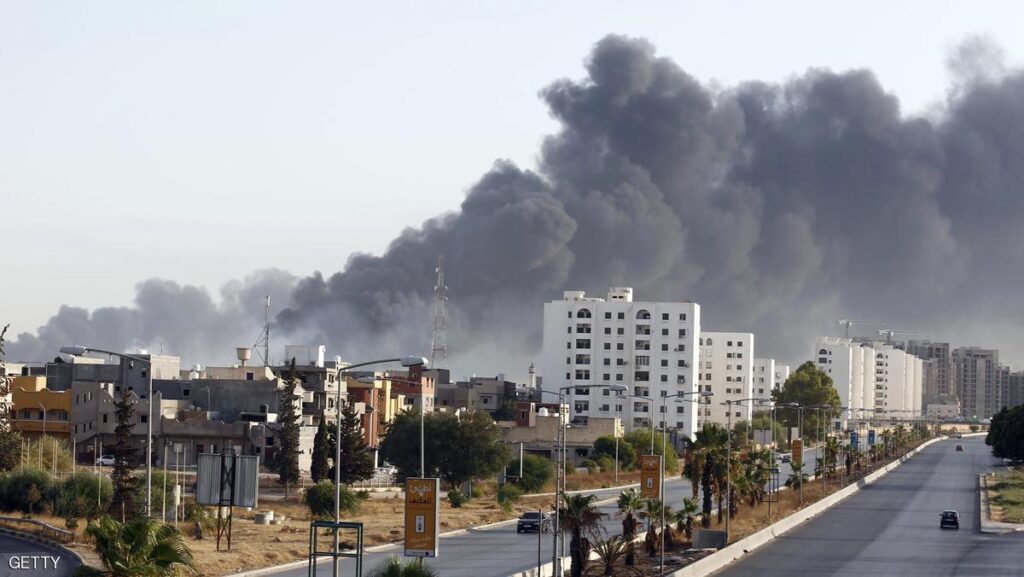The United States, United Kingdom and the Netherlands have expressed concerns over the ongoing fighting in Tripoli, which caused the death of at least four people and the injury of dozen others.
“The United States is deeply concerned about violent clashes in Tripoli with reports of civilian casualties and property damage,” the American Embassy in Libya stated via Twitter. “We stand with the Libyan people in calling for peaceful dialogue.”
Similarly, the British Embassy released a brief statement via Twitter calling for “an immediate end to the violence in Tripoli” and condemned “any attempts to seize or maintain power by force.”
Meanwhile, Dutch Ambassador Dolf Hogewoning urged all parties to “refrain from violent acts” and called for “peaceful measures and dialogue for the benefit of all Libyans.”
Intense fighting erupted in the Libyan capital overnight and lasted into Saturday morning, leading to indiscriminate medium and heavy shelling in civilian-populated neighborhoods in Tripoli.
At least 4 people were killed and a dozen injured since the fighting broke out. The Health Ministry of the Government of National Unity said it received distress calls from citizens stranded in areas of clashes inside Tripoli. The ministry also said that it is “in urgent need” of blood denotations to treat those injured in the aftermath of the conflict.
The violence was the latest escalation to threaten the relative peace after nearly a decade of civil war in Libya, where two rival sets of authorities are locked in a political stalemate.
The rivalry over Libya’s leadership between the two began when 60-year-old Fathi Bashagha was selected by the House of Representatives to lead the country as interim premier last February, thus effectively terminating the legislative legitimacy of his 63-year-old rival Abdul Hamid Dbeibeh whose government failed to hold national elections in December 2021 as per the U.N.-led peace plan.
Bashagha and Dbeibeh enjoy the support of powerful armed groups in Tripoli and Misurata. Both have exchanged accusations of responsibility of the latest wave of violence.
Libya’s rival administrations trade off accusations amid violence in Tripoli
